
Forget Moneyball, Embrace Philosophy
Tired of the standard Football Manager 2026 save where money and unlimited player recruitment solve all your problems?For seasoned managers seeking a unique, deeper challenge in FM26, the answer isn't a tight budget; it's a Club Identity save.
These 10 clubs don't just ask you to win; they impose strict, often historical, player recruitment rules and cultural constraints that redefine the transfer market.
It's not about buying the best player; it's all about buying the right player for your club.
From Athletic Club’s Basque-only rule to the unique cultural restrictions found across the world, owning these limitations is the key to your success in FM26.
The FM26 Identity Challenge
These are 12 of the best identity clubs to manage in Football Manager 2026, each with its own difficulty and storyline.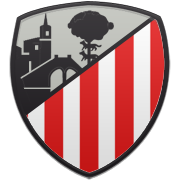
Athletic Club (Spain)
The Rule:
The infamous 'Cantera' policy demands that players must be either from the Basque Country or have developed through the youth system of a Basque club. No exceptions.
The Challenge:
The transfer market is virtually closed. Success hinges entirely on brilliant youth development, masterful mentoring, and scouting a tiny regional pool better than anyone else. Winning a trophy with this constraint is the highest achievement in any FM26 save.

CD Guadalajara (Mexico)
The Rule:
The club's long-standing tradition is to exclusively field Mexican players. This rule has been adjusted to allow players with Mexican citizenship, including those born outside of Mexico who have Mexican heritage and commit to representing the Mexican national team.
The Challenge:
This is the North American mirror of Athletic Club, but in a league (Liga MX) that often uses foreign talent liberally. You must out-scout every rival for the best Mexican wonderkids, then fend off the European giants who come knocking. Building a consistent champion requires an absolute monopoly on national talent.

FC St. Pauli (Germany)
The Rule:
While not an official in-game constraint, the club’s real-world identity is fiercely anti-fascist, anti-racist, and dedicated to the local Hamburg community. For a true FM26 challenge, commit to signing players with high media-handling, low controversy, and strong loyalty.
The Challenge:
Your goal is not just promotion to the Bundesliga, but promotion while maintaining the club's principles. Sell players only to fund community projects, and prioritize players with high determination and work rate over raw talent.
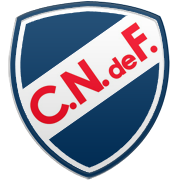
Club Nacional de Football (Uruguay)
The Rule:
Historically commits to a majority of homegrown Uruguayan players, prioritizing players either from their academy or from local, rival clubs.
The Challenge:
Dominate the Uruguayan league and develop the nation's best wonderkids. Your ultimate goal is to win the Copa Libertadores with a squad filled with almost entirely of Uruguayan-born talent, replicating the club's proud heritage.

Sparta Prague (Czechia)
The Rule:
The traditional powerhouse of Czech football, they maintain an unspoken rule to prioritize Czech and Slovak talent.
The Challenge:
In a league constantly facing competition from wealthier European sides, the challenge is to prevent your best young Czech talents from leaving while also challenging for a deep run in the Champions League using predominantly local players. This tests your ability to retain talent against the odds.

NK Lokomotiva Zagreb (Croatia)
The Rule:
Lokomotiva historically serves as a direct affiliate to Dinamo Zagreb, often taking on their loanees and selling promising players to them.
The Challenge:
The ultimate test of managing a feeder club. Can you break the chain, stop selling your best players to your dominant rivals, and win the Croatian league title before they can snap up your talent? This is a brutal, financial, and ethical identity struggle.

CA Fénix (Uruguay)
The Rule:
While located in Uruguay, Fénix often focuses on Argentinian loanees and young players from the Argentinian football pyramid, reflecting a strong cultural link.
The Challenge:
Build a reputation as the premier developer of young Argentine and Uruguayan talent, becoming the feeder club for Europe, but maintaining enough quality to consistently challenge their domestic rivals.
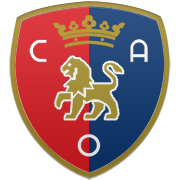
CA Osasuna (Spain)
The Rule:
A softer, less strict version of the Athletic Club rule, focusing heavily on players developed in the Navarre region and the broader Basque Country.
The Challenge:
Compete in LaLiga on a modest budget by out-developing the youth of the Spanish giants. The difficulty lies in striking a balance between the intense pressure to survive in Spain's top flight and the philosophical preference for homegrown players.

NK Maribor (Slovenia)
The Rule:
As the biggest club in Slovenia, their identity is tied to national dominance and fielding a large core of Slovenian players.
The Challenge:
Dominate your league and use the Champions League revenue to drastically improve youth facilities. The main problem is the transfer budget and the limited national player pool; you must become a consistent European group stage participant using players primarily from Slovenia and the Balkans.

FC Liefering (Austria)
The Rule:
Liefering exists primarily to develop players for its parent club, Red Bull Salzburg. They have a very young squad and typically have a €0 transfer budget which limits your ambition with signings. You will rarely keep your best players, and you must play a high-pressing tactical style dictated by the Red Bull brand.
The Challenge:
You are playing with one hand tied behind your back. Your success is measured not by trophies, but by how many players you graduate to Salzburg. You must win the second division while constantly losing your top talent to your own 'boss'.

FC Midtjylland (Denmark)
The Rule:
Known for their unique, data-first "Moneyball" approach to recruitment, their identity is tied to analytical efficiency rather than geography.
The Challenge:
Commit to the principles of data-driven recruitment. Only sign top bargain players undervalued by advanced metrics (for example, high-potential players on expiring contracts, high-volume passers with low ratings). Ignore reputation and focus only on the numbers to disrupt the Danish Superliga.

AFC Wimbledon (England)
The Rule:
Wimbledon was famously created by its supporters after the original club moved away. It is fan-owned and fan-run, meaning every major decision must consider the community and the club's humble, hard-working ethos.
The Challenge:
Your transfers must be sensible and financially smart. The fans have a direct voice, and you cannot sign mercenaries or spend wildly. The save is about a community-driven ascent from the lower leagues back to the top, staying true to the identity forged by its supporters.
In Football Manager 2026, you could choose to buy the best players.
But these clubs offer a much intriguing story, as each team has a special rule or identity you must follow.
Can you win a major trophy while only using players from your local area (like Athletic Club)?
Can you follow a club's strong beliefs and still win the league?
These Identity Challenges make every win feel bigger. It is not about the money you spend, it's about the story you create.
Which club's identity will you choose for your first FM26 save? Share your choice in the comments!







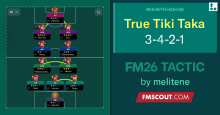
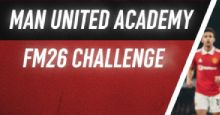


Discussion: Best FM26 Saves: 12 Clubs With Strict Player Identity Rules
No comments have been posted yet..